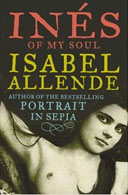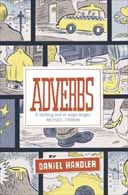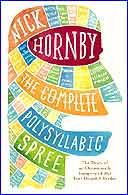The Door
by Magda Szabó, translated by Len Rix
262pp, Harvill Secker, £15.99
It was Virginia Woolf who first drew attention to the relationship between creative output and domestic chores. There are no 17th-century female poets, she wrote, because "Shakespeare's sister" was too busy mending stockings or watching the stew. Centuries later, and with cash to spare, the great-granddaughters of Shakespeare's sister have been solving this problem with hired help. In The Door, Hungary's most famous living author, Magda Szabó, gives a rare insight into the precarious relationship between the "lady writer" and her woman who does.
The elderly caretaker Emerence comes with perfect references: she can be trusted not to steal or set fire to the house, and is beyond boyfriend problems. But when she arrives for her interview, it turns out that this big-boned, powerfully built woman who radiates strength like a Valkyrie is there to conduct her own assessment. Assuming that someone can vouch for the writer and her husband, and that they won't brawl or get drunk, Emerence will decide her pay once she sees how slovenly her new charges are. "I don't wash just anyone's dirty linen," she says before taking her leave.
A week later, Emerence begins her idiosyncratic reign over the intellectuals' home, which will last from the early 1960s to the late 1970s. With no formal agreement on hours or responsibilities, Emerence might be absent for days, only to appear late at night and then scrub the kitchen or pantry till dawn, or render the bathroom out of bounds for a day and a half because she has rugs soaking in the tub.
"She made demands, more than I had expected, but she also gave a lot," writes Szabó of a relationship that grows into a fierce, at times disabling, mutual dependency, but one that also ensures absolute domestic order. Thanks to Emerence, The Door's unnamed narrator (a thinly veiled self-portrait) has the time to take on more and more work, eventually winning Hungary's most prestigious literary prize (as did Szabó, in 1978).
But while Emerence makes it easier for Szabó to work, she is a far from palliative presence. There are ferocious battles of wills, and "Virgilian nights of real and surreal elements". Emerence, it turns out, for all her taciturnity, is a woman who gives without reservation, and is prone to fearsome rages should her gifts (whether love or ornaments) be rejected. Szabó reveals herself as a similarly melodramatic character, her moods on a hair-trigger between total love for this complex mother figure and fury at her wilful hired help.
Writing The Door after Emerence's death (for which she irrationally blames herself), Szabó states: "I know now, what I didn't then, that affection can't always be expressed in calm, orderly, articulate ways; and that one cannot prescribe the form it should take for anyone else." There is much in this story that will bewilder and perplex (perhaps something of the mercurial Hungarian mindset is lost in translation), but The Door is a valuable document of a vital relationship.
· To order The Door for £14.99 with free UK p&p call Guardian book service on 0870 836 0875.




